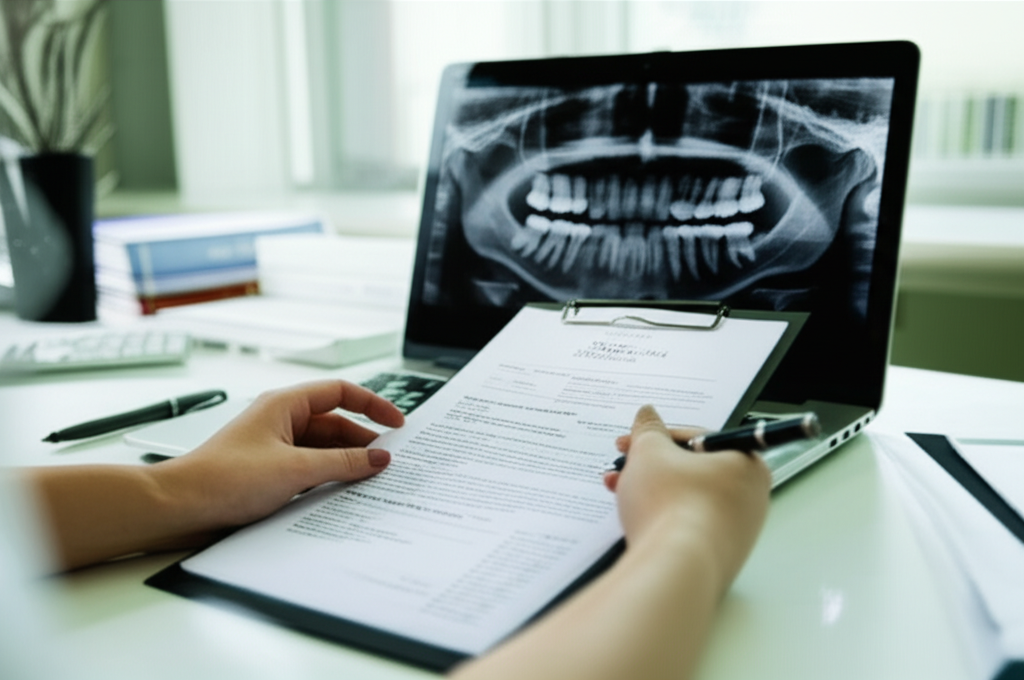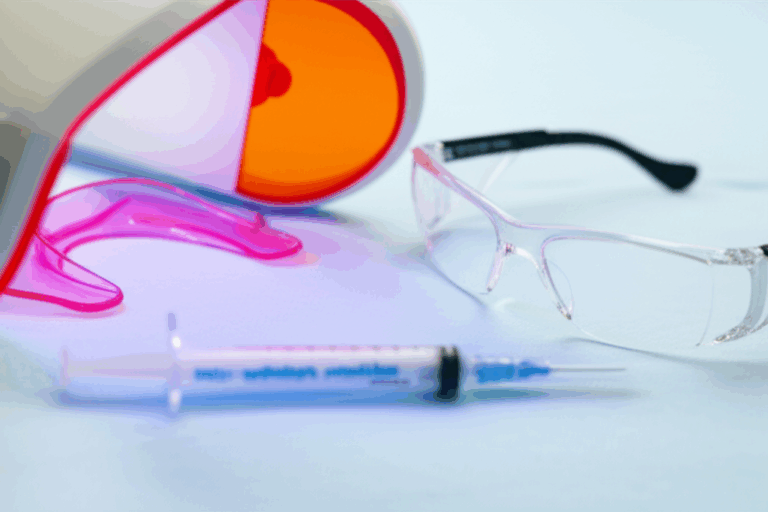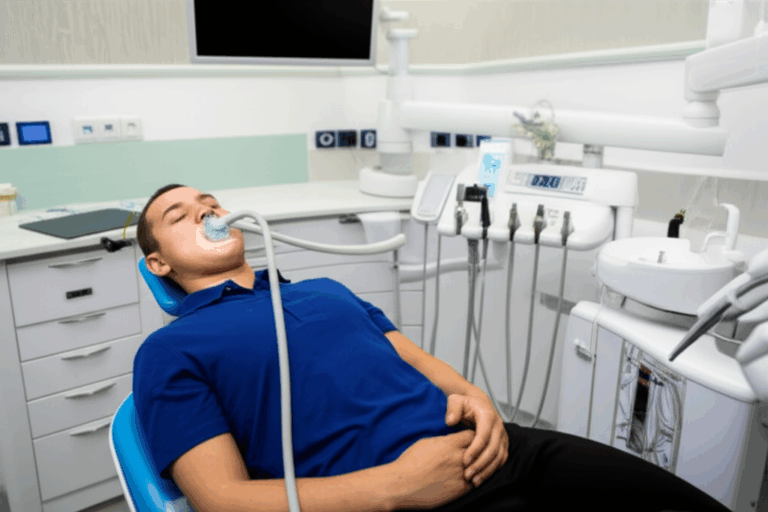
Can a Dentist Charge You for a Copy of X-Rays? Your Simple Guide to Fees, Rights, and Easy Access
Have you ever tried to switch dentists or get a second opinion, and found out you need to pay to get copies of your dental X-rays? Maybe you’ve seen an unexpected “records fee” and wondered if that’s okay—or even fair. Lots of people feel confused about their rights when it comes to getting their dental records, especially those X-ray pictures of your teeth.
So, can your dentist charge for a copy of your X-rays? The real answer is yes—sometimes they can, but there are important rules and limits that protect you as a patient. If you want a clear, simple answer and don’t want to pay more than you should, you’re in the right place.
Let’s break down what you need to know: what the law says, what counts as a fair fee, how to ask for your records without hassle, and what you can do if something feels wrong.
In This Article
- Can Dentists Charge for X-Ray Copies? The Short Answer
- The Law: Your Right to Access Dental Records & What Fees Really Mean
- What’s a “Reasonable” Charge for Dental X-Rays?
- Your Patient Rights: How to Get Copies of Your Dental X-Rays
- How to Request X-Rays Without Hassle—And What to Include
- Common Scenarios and Practical Tips
- What If There’s a Problem? Disputes, Complaints, and Solutions
- Key Takeaways: Empowering You as a Patient
- Frequently Asked Questions About Dental X-Ray Copies
Can Dentists Charge for X-Ray Copies? The Short Answer
Let’s get to the main point fast:
Yes, a dentist can charge you for a copy of your dental X-rays.
But—and this is important—those charges must be “reasonable” and only cover the real cost of making those copies. Dentists can’t legally charge high prices, add weird “retrieval” fees, or use this to make extra money.
Why is this such a common question? Usually, you’re asking because:
- You just got a bill you didn’t see coming.
- You want to move your records to a new dentist.
- You want to keep track of your health history.
Knowing what dentists are really allowed to charge—and how to ask for your records—can save you trouble, money, and stress.
The Law: Your Right to Access Dental Records & What Fees Really Mean
To really understand your rights, let’s look at the laws that protect you—and what they mean in plain English.
HIPAA: The Countrywide Law for Patient Rights
HIPAA (the Health Insurance Portability and Accountability Act) is a United States law saying you can see your own “Protected Health Information.” This includes dental records, X-rays, charts, and more. Dentists, like doctors and hospitals, have to follow these rules.
What fees are really allowed?
Under HIPAA:
- Dentists can only charge you for the real, cost price of copying and sending your records.
- These charges can only be for labor (copying/preparing the records), supplies (CD, film, USB stick), and postage (if mailed).
- Dentists can’t charge for “looking for” or “finding” your records. No extra computer or admin fees.
- No markups or profit allowed. Only the plain cost.
State Laws Matter Too
Now, it gets a bit more detailed. Many states have their own rules for medical and dental record requests—and sometimes they are even harder on offices than HIPAA. Some states cap the per-page fee or say you can only be charged a set dollar amount when getting electronic records. Whatever rule is “better” for you (the patient) is what will count.
Examples:
- In California, the cost for sending you digital records is usually limited.
- In New York, you shouldn’t be charged more than 75 cents per paper page.
Tip: If you’re not sure about your state, call your state dental board or look for “dental records access” or “copy fees” on their website.
What’s a “Reasonable” Charge for Dental X-Rays?
Learning about cost isn’t just about the law. It’s knowing what’s normal when you ask for your dental records.
Allowed Charges (What Might Really Show Up)
The real time a staff member spends finding, copying, and getting your X-rays or records ready. Usually, that’s just a few minutes for digital files.
If you want your X-rays on a CD, USB, DVDs, or printed paper, you might have to pay for the actual supplies. Digital transfer (like secure email or a patient portal) is usually much cheaper—or even free.
If records are mailed to you (or your new dentist), you can be charged the normal price for postage. No extra fees.
Normal Fee Ranges (What’s Common?)
| Format | Common Fee |
|---|---|
| Electronic (emailed/portal) | $0 – $25 (often free) |
| CD or USB drive (digital) | $10 – $50 |
| Film X-rays (duplicated) | $25 – $75 per set |
| Printed records (per page) | $0.50 – $2 per page |
Example:
If you want all your X-rays from the last three years, emailed to you, this should be free or just a small fee, like $10–15, to cover the time. If you want a CD, it might be $20–40, for the disc, packaging, and the time it takes.
When Is It Free?
- If your records are going right to another dental office for a referral or second opinion, some places don’t charge at all.
- Most insurance requests don’t cost you anything.
- Some offices don’t charge anything—especially for emails or digital files.
Be Careful
If you’re told a high price (like $100 for digital files), that sounds wrong. Always ask for a list of costs, and look up HIPAA and your state’s laws if it feels off.
Your Patient Rights: How to Get Copies of Your Dental X-Rays
Worried or embarrassed about asking your dentist for records? Don’t be. This is your right—think of it as your personal dental history, not something owned by an office. Here’s what matters:
1. You Have the Right to See and Get Copies
You can:
- Look at your dental records in person. Bring ID, and ask to see your chart and X-rays while there.
- Ask for a copy the way you want it—digital file, paper, disc, USB. If they can’t send your choice, they have to work with you to find another way.
- Send your X-rays right to a new dentist, specialist, or other healthcare provider if you ask them.
2. How Long Should It Take?
- Under HIPAA, dentists have to give you your records within 30 days.
- If they need more time (rare), they can get 30 more days, but must send you a written reason.
- Some states require even faster time, like 15 days.
3. Who Else Got Your Info?
You can also ask for a list (“accounting of disclosures”) showing who else has been given your records, including X-rays.
4. If Your Request Is Refused or Costs Too Much
If the office takes too long, says no, or tries to overcharge:
- First, talk to the office manager or helper—sometimes it’s just a mix-up.
- File a complaint with your state dental board or attorney general.
- If it’s a HIPAA problem (like wrong fees), file with the U.S. Department of Health and Human Services Office for Civil Rights (OCR). This can end in investigations and refunds.
How to Request X-Rays Without Hassle—And What to Include
No one wants a hard time. Here’s how to ask for your X-rays with no problems.
Write It Down: The Formal Request
Always ask in writing. Email works, but a signed paper request is even more solid.
What to Include:
- Your legal name and date of birth
- Your contact info
- What you want: Certain dates, types of X-rays (example: “All X-rays and dental records from May 2021 to April 2024”)
- How you want them: Email, paper, CD, USB
- Who should get the records: You or your new dentist (add their address or email)
- Your signature and the date
Sample Request Template
> To Whom It May Concern,
>
> I am asking for copies of all my dental X-rays and records from [Date Range]. Please send them by [Your Preferred Format] to [Your Address or Provider Address].
>
> Patient Name:
> Date of Birth:
> Contact Info:
>
> Thank you,
> [Signature]
> [Date]
Tips for a Smooth Ride
- Plan ahead. Start early, especially if switching dentists.
- Follow up. A reminder call or email can help.
- Ask about the fee first. If it seems high, mention HIPAA or your state’s law. Most clinics are open to working with you.
- If you’re moving to a new office, ask if they can get the records for you. Some places do this for you to save time.
##### Note:
Your new dentist might need new X-rays if it’s been a while, or your case is tricky. This is normal and often good for current care.
Common Scenarios and Practical Tips
Here are a few real-life examples to help you see how this works out.
1. Switching Dentists
If you’re moving or just want a new dentist:
- You make a written request (specify details)
- Your old dentist might charge a fair basic fee
- Records often are sent right to your new office (sometimes for nothing)
2. Getting a Second Opinion
Asking for another point of view is your right and shows you care. Asking for your X-rays is normal—dentists expect it!
3. Insurance Claims or Legal Cases
If an insurance company asks for records for your claim, you don’t pay. For legal reasons, say so in your request. Fees must still follow the law.
4. Keeping Personal Records
It’s becoming more normal for people to keep copies of their own X-rays—just in case, or to bring to a specialist, or to keep track for themselves.
What If There’s a Problem? Disputes, Complaints, and Solutions
Most offices want to help you. But not every experience is easy. Here’s what to do if you think you’re being overcharged or ignored.
Step-by-Step
Many times, a simple question—“Why is this fee so high?”—clears things up.
Ask for each charge explained. Check HIPAA and your state’s rules.
Show them U.S. Department of Health and Human Services rules on fair costs—usually, this helps.
- State Dental Board: Handles professional issues.
- State Attorney General: For consumer problems.
- Federal Complaint: HHS Office for Civil Rights (OCR) for HIPAA problems.
Real Example:
A dentist wants $150 for a set of digital X-rays on USB. Patient asks for a breakdown and mentions HIPAA’s price limits. The office drops the fee to $15, seeing their policy was old.
When NOT to Pay
If you’re told to pay a fee that’s way too much—like $100 or more for a simple email, or a weird “retrieval fee”—say you’ll only pay a fair, cost-based amount. If they refuse to give your records, file a complaint.
Key Takeaways: Empowering You as a Patient
- You have the right to access your dental records and X-rays.
HIPAA gives this right and most states add even more protection.
- Dentists can only charge you what it really costs to copy and send your records.
Labor, supplies, and postage—nothing more.
- Normal costs:
Digital copies are usually $0–25; CD/USB, $10–50; film copies, $25–75 a set.
- Plan ahead:
Write clear requests, give details, and ask early.
- Know what to do if overcharged:
Mention the law, ask your state dental board, or complain to the government.
- It’s your health, your story, your right.
Don’t let confusion stop you from owning your oral health.
Frequently Asked Questions About Dental X-Ray Copies
Can a dentist refuse to give me my X-rays?
No. You always have the right to see your dental records and X-rays. Dentists can delay only if there’s a big safety risk (almost never the case with dental X-rays).
What if my dentist says the X-rays belong to the office?
The physical film or digital files might belong to the dental office, but what’s on them—the image of your teeth—belongs to you under the law. You can have a copy.
How can I get my X-rays sent to my new dentist for free?
Ask for a direct transfer. Most offices don’t charge for sending records to another dentist if you’re switching.
What should I do if I think the fee is too high?
Ask for a detailed bill and bring up HIPAA’s fair cost rule. If the office won’t work with you, contact your state dental board or the government.
Do insurance companies ever pay the cost of copies?
Hardly ever, unless the X-ray was only taken for an insurance claim (like with orthodontics or injury). Getting your old records is usually something you pay for.
My treatment involves crowns, bridges, or implants. Do I need to bring old X-rays when visiting a crown and bridge lab or an implant dental lab?
Dentists or labs who do crowns, bridges, or implants often need clear X-rays to plan your treatment. Having digital copies handy can help and may mean you don’t need new X-rays.
I have digital X-rays from a previous provider. Where can I take them to get checked?
Digital X-rays are easy to share with most dental clinics, from digital dental specialists to a new general dentist. Bring a copy (email, USB) to your next visit.
Final Thoughts: Your Smile, Your Health, Your Rights
Taking control of your dental history—even just by asking for “a copy of your X-ray”—means you care about your health. Knowing your rights, what’s fair (and what’s not), and being ready to speak up means you won’t be shocked by strange fees. It’s about being confident as you take care of your teeth.
Your dental records are more than a note on your last filling: They tell your story. You’re the author.
Got questions about your own X-rays or dental records? Don’t hesitate to ask your dentist. Smart, confident patients make dental care better for everyone.
For more about dental records, digital lab work, or new dental ideas, check out our guides to emax dental lab, dentist, or crown and bridge dental laboratory. Taking small steps today leads to a healthier smile tomorrow.
Checked by a licensed dental professional. This is for information only—always talk to your dental provider about your own dental needs.







